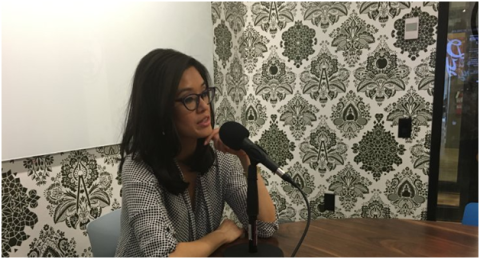
Everyday I sit in a television studio and pepper people with questions about a variety of topics related to business. It's about the most unnatural way to talk to a person but somehow, it works onscreen.
Similarly, everyday, thousands of people across the country are interviewed for jobs. And in the same vein, it's about the most unnatural way to get to know someone. Yet the work ritual exists and to some extent, offers value to the hiring manager. So how do you impress in the fifteen short minutes you have in front of a potential boss? How do you get his or her attention?
Below are five tips that work whether you're ready to join a startup or leap to a big company:
1. Cut out the jargon. Unfortunately, business is afflicted with the jargon disease and it's turning us into plastic cut-outs of real people. While you think you may sound smart, a sharp boss knows you're using jargon to hide gaps in your knowledge. Just speak like a normal person who's relatable and you'll make a much stronger impression.
2. Keep eye contact. Don't stare your interviewer down, but don't shy away from eye contact when talking. Hold the person's gaze, lean in, express yourself through your eyes and your posture. Steve Schwarzman, the billionaire founder of private equity firm, Blackstone, told me that, "usually people give themselves away with their eyes. I'm always very focused on their eyes and whether they seem to be comfortable in a setting, how fast are they processing things, are they interesting?" Avoiding a person's gaze can make you look shifty, insecure and unemployable.
3. Avoid the word "but." For some reason, sentences sound worse when people inject the word "but."
For example:
I can get that project to you by Friday but it might not be until 5 pm.
vs
I can get that project to you by Friday and it might be more like 5 pm.
Doesn't the second sentence just sound more pleasing even though it's conveying the same message? The problem with "but" is it's almost always succeeded by something negative. The best thing to do is try to avoid answering questions by saying "Yes, but..." How about "Yes, and..." You'll rankle fewer people, guaranteed.
4. Be prepared for the trick question. Usually the trick question is one of the most common ones: What have you learned from your mistakes (watch CEOs on Radiate answer this question)? I dislike that question because almost nobody answers it truthfully. Here's the rub: nobody is expecting you to answer it truthfully. Rather, the interviewer wants to see how you handle being challenged. The best way to answer this question is to find a moment years ago when you made a mistake and then talk about how you rectified it. Just try to avoid an example that directly relates to the job at hand.
5. Come with your own questions! Nothing is more limpy than ending an interview with "Any questions?" and the interviewee just shrugs, smiles and says not really. First off, the interviewer knows this is not true because every applicant has a ton of questions. Second, not asking questions shows disinterest. And third, you've just given up the one chance to rise to the level of the interviewer. Don't be afraid to ask a few tough but polite questions back to the interviewer. This shows you have confidence and you've done your homework. "What was their thinking behind going after X deal." "What is the pathway to advancement?" "I've read reports of staff turnover at X department. Can you tell me what the situation is?" Being direct with these questions shows you're sincerely interested in the position.